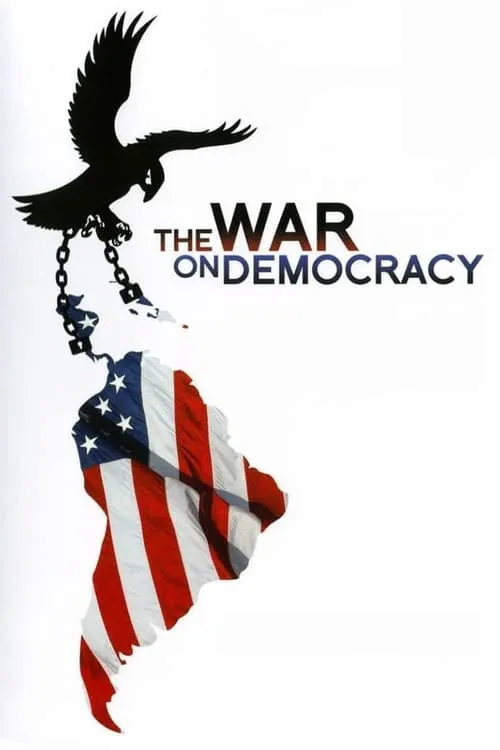The War on Democracy

Trama
The War on Democracy is a 2007 documentary film that delves into the complex and often contentious relationship between the United States and several Latin American countries, including Venezuela, Bolivia, and Chile. The film's director, John Pilger, is renowned for his incisive and often provocative documentaries that expose the darker side of power and politics. In The War on Democracy, Pilger weaves together a rich tapestry of historical and contemporary events to reveal the true nature of the so-called "war on terror". The film begins with a historical context, delving into the tumultuous relationship between the United States and Latin America from the early 20th century. Pilger examines the ways in which Washington has consistently interfered in the internal affairs of these countries, often through the use of violence, manipulation, and coercion. The examples abound: the CIA-backed coup that overthrew democratically-elected President Jacobo Árbenz in Guatemala in 1954, the Chilean coup of 1973 that ousted President Salvador Allende, and the 1980s Contra war in Nicaragua, all serve as poignant reminders of the United States' history of interventionism in the region. Pilger argues that this pattern of intervention has continued to the present day, with the Bush administration's "war on terror" serving as the latest manifestation of Washington's obsession with exerting control over the region. The film highlights the key role played by Venezuela under the leadership of Hugo Chávez in resisting the United States' attempts to exert its influence. Chávez's radical policies, including nationalization of key industries and social welfare programs aimed at reducing poverty, have made him a thorn in the side of the US government. However, The War on Democracy is not merely a critique of US foreign policy; it is also an exploration of the ways in which the Latin American region is seeking to free itself from the yoke of imperialism. Pilger shines a light on the vibrant social movements and popular uprisings that have swept across the region in recent years, as citizens take to the streets to demand greater democracy, social justice, and economic equality. The film's portrayal of the Bolivian struggle for water rights and the Venezuelan people's resistance to US-backed coup attempts is particularly compelling. One of the most compelling aspects of the film is its use of personal testimony from individuals who have experienced the reality of US intervention firsthand. Pilger's interviews with Venezuelan President Hugo Chávez, Bolivian President Evo Morales, and other key figures offer a unique insight into the minds and motivations of those who have been directly affected by US foreign policy. The film also includes testimony from ordinary people, whose stories serve as a powerful reminder of the human cost of US intervention. Throughout the film, Pilger returns to the idea that the current crisis in the world is not simply a manifestation of a power vacuum or a battle between competing ideologies, but rather a struggle for the very soul of the world. He argues that the so-called "war on terror" is, in fact, a "war on democracy", an attempt by the United States to impose its values and institutions on the world, while suppressing dissent and opposition. The film's central message is that the power of empire may be great, but it is not invincible, and that people power, fueled by courage, creativity, and a commitment to justice, can always be the seed that springs forth beneath the snow of oppression. The War on Democracy is a film that challenges viewers to think critically about the world we live in. It is a call to action, urging us to resist the forces of oppression and to work towards a more just and equitable world. Pilger's masterful storytelling and his ability to connect the dots between historical events and contemporary struggles make the film a must-watch for anyone interested in international politics, human rights, and social justice.
Recensioni
Raccomandazioni


